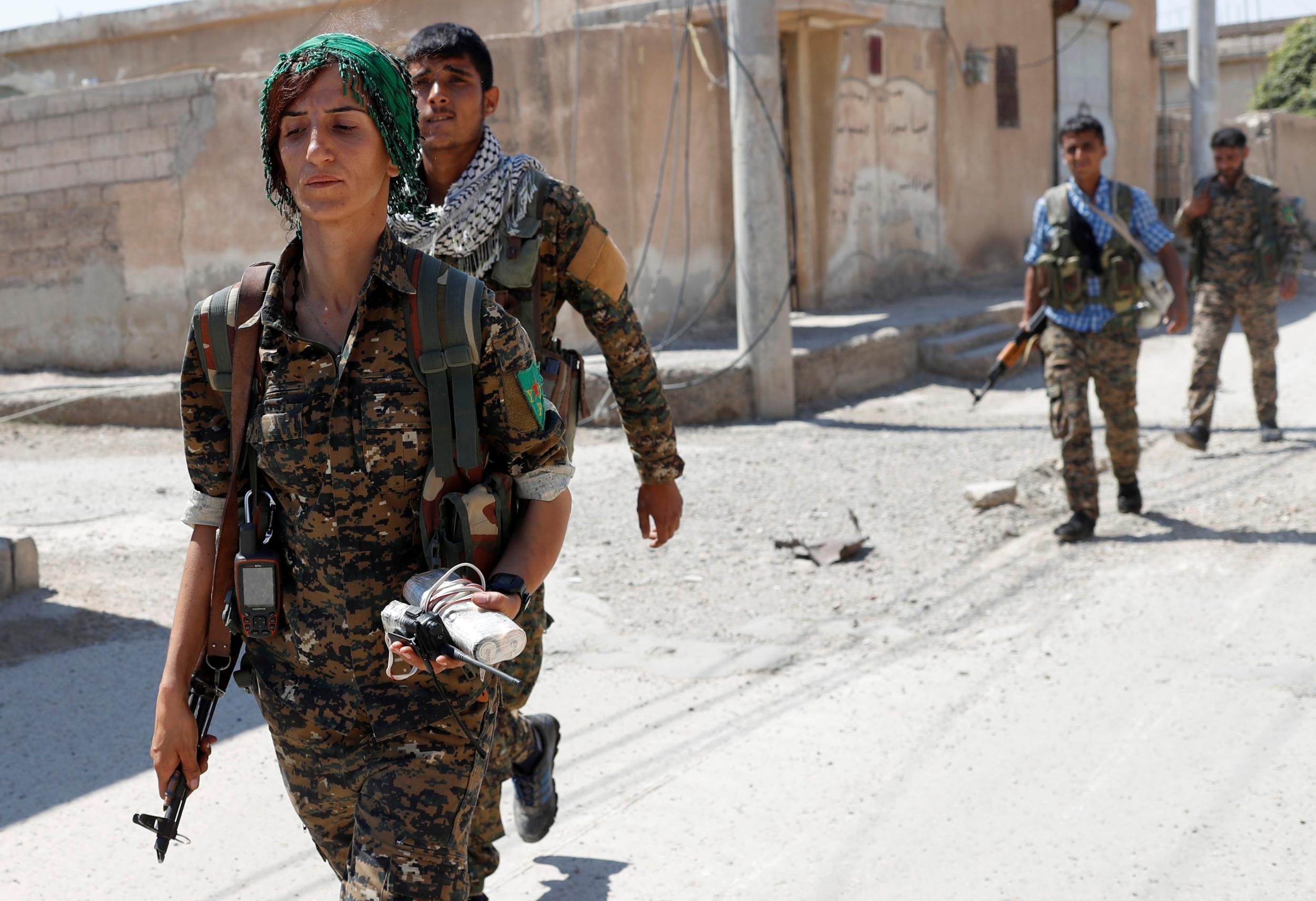Isis has 'fallen' in Iraq and is now hanging on by a thread in its last stronghold
Militants launch counter attack on US-backed Kurdish forces advancing on de facto Syrian capital of Raqqa, but days of the caliphate are numbered

On the same day the Iraqi army retook Mosul’s grand mosque and declared Isis’ reign in the country to be over, US-backed Kurdish forces managed to cut off all escape lines from Isis’ last stronghold - the Syrian city of Raqqa.
Isis is now completely besieged after the Kurdish-Arab Syrian Democratic Forces (SDF) coalition managed to push towards the last remaining stretch of the bank of the Euphrates opposite the city which serves as the militants’ de facto capital.
War monitor the Syrian Observatory for Human Rights said that Isis launched a fierce counter attack on the SDF-held industrial districts in the city’s east on Friday, retaking three neighbourhoods.

The battle for Isis’s last city has dovetailed with the campaign for Mosul - and like the fight for the Iraqi city, could be long and bloody.
Fighters on the ground have been slowly tightening the siege around jihadi militants in the northern city since November, assisted by coalition air strikes.
Several foreign volunteers make up their number - including 27-year-old Briton Kimmie Taylor, who fights with the Women’s Protection Units (YPJ).
“I know a lot of friends will die, especially in the city – it’s going to be a bloodbath,” the 27-year-old told The Independent before the assault on Raqqa began in earnest earlier this month.
There are mounting concerns for Raqqa’s residents - who, like hundreds of thousands in Mosul before them, have been barricaded into their homes to prevent them from fleeting.
Faced with a fight to the death with no prospect of surrender, Isis are more likely than ever to use Raqqa’s estimated 100,000 civilians as human shields.
Naser Haj Mansour, a senior SDF official, told Reuters on Thursday he thought it could be “maybe more than a month or a month and a half” before the militia coalition retook the city.
While previous SDF timelines for its battles against Isis have proven overly optimistic, new analysis from IHS Markit’s Conflict Monitor suggests that it is highly unlikely Isis’ quasi-state project will live to see its fourth birthday.
By June 2017 the group has lost 60 per cent of its territory and more than 80 per cent of its income since the height of its powers in late 2014 - early 2015.
Combined with the fall of Mosul - during which fighters blew up the al Nuri mosque from which the caliphate was declared in 2014, a huge symbolic blow - morale in the organisation is thought to be very low.
“Islamic State's project lies in ruins. To see just how bad things are going, consider that they even destroyed the historic mosque where Baghdadi first emerged to declare his caliphate,” said Dr Shiraz Maher, deputy director of the International Centre for the Study of Radicalisation at King's College London.
Once Raqqa has fallen Isis will have lost both its Syrian and Iraqi capitals - but the fight is not quite over.
In Iraq, pockets of Isis resistance in Hawija, Tal Afar and al-Qaim are now in the US-backed coalition’s crosshairs, and in Syria, Isis still retains control of most of the 200 kilometre (130 mile) stretch of the Euphrates valley up to the Iraqi border.
Isis has also besieged the city of Deir Ezzor, although the Syrian army is advancing to the jihadists’ front lines from the direction of Palmyra.
Analysts expect the group to morph into a full-blown insurgency across the two countries, and for Isis to step up terror attacks around the world in future.
“It’s important to differentiate between Isis as a global ideology and its physical quasi-state project,” Dr Andreas Krieg of King's College London's Department of Defence Studies told The Independent.
“As long as the root factors for violence remain - the Syrian civil war and… all the local grievances that allowed Isis to flourish [in Iraq] - this philosophy will not be defeated.”
Join our commenting forum
Join thought-provoking conversations, follow other Independent readers and see their replies
Comments